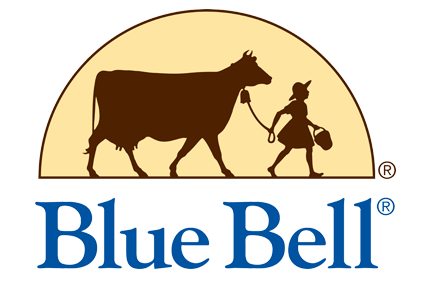
Blue Bell Creameries found listeria two years ago at one of three plants now closed after a fatal outbreak, it has emerged.
The US ice cream producer had positive tests for the bacteria at its site in Broken Arrow, Oklahoma, dating back to 2013.

Discover B2B Marketing That Performs
Combine business intelligence and editorial excellence to reach engaged professionals across 36 leading media platforms.
The company, which shut the factory last month in the wake of fatal listeriosis outbreak, did not tell regulators.
Blue Bell found 17 samples of listeria on surfaces and floors at the Broken Arrow facility over the period.
The positive tests only came to light after the US Food and Drug Administration inspected the Broken Arrow plant last month.
A spokesperson for the FDA said food manufacturers were not obliged to report every positive test for listeria.

US Tariffs are shifting - will you react or anticipate?
Don’t let policy changes catch you off guard. Stay proactive with real-time data and expert analysis.
By GlobalData"When a company finds that food has a reasonable probability of causing serious adverse health consequences, they must report it to the FDA. However, it's important to note that not all strains of listeria are capable of causing disease. And when listeria is found in the manufacturing environment, rather than on the food itself, it is not uncommon for a company to immediately take corrective action, rather than test further to see if the strain of Listeria poses a threat [and] is pathogenic. Although Blue Bell’s testing did identify listeria, the company did not further identify the strain to determine if it was pathogenic. Therefore, it is not known whether the strain found in 2013 was listeria monocytogenes or another non-pathogenic type of listeria," the FDA spokesperson told just-food.
He added: "The requirement is for them to tell us if they find contamination in food. When listeria, or another pathogen, is found in the manufacturing environment, rather than on the food itself, it is not uncommon for a company to immediately take corrective action, rather than test further to see if the strain of listeria is pathogenic. We couldn’t speculate on what species the listeria may have been."
Blue Bell did not return a request for comment.
Three people in Kansas have died in the outbreak linked to the consumption of Blue Bell ice cream. Seven other people in Kansas, Texas, Oklahoma and Arizona have fallen ill.
Blue Bell first pulled some lines from the market last month. Ice cream made at its Brenham site in Texas was found to be contaminated with three of four strains of listeria found to have infected patients at a hospital in Kansas. Three of this cluster of patients have died. The dates of the illness ranged from January 2010 to January 2015.
The company extended the recall two weeks later after a second cluster of three patients with listeriosis between 2011 and 2014 was, according to the US Centers for Disease Control and Prevention, found to be "highly related" to samples from a single-serve ice cream cup made at a second plant in Broken Arrow, Oklahoma.
On 3 April, Blue Bell suspended operations at the Broken Arrow site. On 7 April, Blue Bell expanded the recall of products made in Broken Arrow. A third site, in Sylacuaga, Alabama, is also closed. The FDA has inspected each of the facilities.
In its report on the Broken Arrow site, the FDA said Blue Bell had "failed to demonstrate your cleaning and sanitising program is effective in controlling recurring microbiological contaminations".
It added: "You continued to have presumptive positive environmental test results for Listeria spp. and elevated total coliform results following the daily cleaning and sanitising treatments of your equipment and facilities.
In an update dated 7 May on Blue Bell's website, the company said it was preparing "detailed" responses for the FDA's findings.
It added: "We are continuing the process of thoroughly cleaning and sanitising each facility, including disassembling equipment, conducting extensive maintenance and repairs, and conducting employee training in microbiology and sanitisation. We are also reviewing all of our operating procedures and every step of the production process to eliminate possible contamination pathways."





